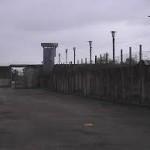Many in the ranks of Loyalism today are too young to remember any significant events in the conflict in Northern Ireland. This has lead them to become known as Ceasefire soldiers, people who became involved after the 1994 Combined Loyalist Military Command ceasefire and the Good Friday Agreement in 1998.
to remember any significant events in the conflict in Northern Ireland. This has lead them to become known as Ceasefire soldiers, people who became involved after the 1994 Combined Loyalist Military Command ceasefire and the Good Friday Agreement in 1998.
While many it is sad to say involved themselves for reasons other than to ensure the wellbeing of Northern Ireland, many others were simply born too late. They have the same determination and drive in the peace process as the many men who fought and died at times of war. When you look at the period from 1969 to the present day we can see the nature of both the conflict and the peace process – both periods light years apart from the perspective of violence but yet intertwined with the same outcome, ensuring the constitutional position of Northern Ireland within the United Kingdom.
I believe that my generation were a lot more mature than the teenagers of today and understood what was happening in the twilight years before the 94 ceasefire. At home silence broke on our house for the 6 o clock news, any noise was quickly shouted down to hear of the days unfolding events. It was then I began to grasp what was happening in our country; reading books, news clippings and taking an interest in current affairs shaped my life for the path I was to take in early adulthood. Looking back now, things were not always as rosy as people remember, if we look to the late 90’s, republicanism was still violently active right up until 1997 and the shaky process was brought back many times from the brink of failure. The issues around parading and parades were our daily diet and the problems from that time are still evident and the wounds from those days are still festering at present. The year of 2002 saw some of the worst interface violence since the outbreak of the troubles, protestant homes destroyed in petrol bomb attacks and shots fired from republican areas across the peace lines. Loyalism at the time was in unchartered waters and many children of the 80’s were happy to enlist in the ranks as many of the older generation had done in the early 70’s. Young men, in entirely different era’s yet still with the same objective – to defend and now newly promote Northern Ireland, the land of our birth.
Indeed in many ways now winning the peace is as equally, if not more important as winning the war. We must ensure that our people are as well represented now in peace time so that the memories of those who gave their lives are entrenched in our history. We must not leave politics to the politicians alone, it is the duty of our young people to stand against inequalities and speak up for our community in a constructive yet peaceful manner. While we must share space with republicans we must ensure that they are not allowed to re-write our history, or sully the efforts of our organisations in securing a lasting peace. Loyalism was not found wanting by our older generations in times of conflict so we must ensure that our communities are not found wanting at times of peace.
The challenge now to the older ex combatants must be to nurture and educate our young so that when the time comes the mantle will be passed on so that our ship remains seaworthy, steady and in British waters for centuries to come. The older generation of Loyalism must pass on the school of knowledge which was received in the compounds of Long Kesh to ensure our younger generations, the future of our organisations and the new standard bearers of Loyalism have all the ‘tools’ to ensure our progress as a people to win the peace. The challenge must also be laid down to our ‘Young Citizens’ they must listen and learn from men who were at the forefront of defending their people, learn from their mistakes, share experiences and take the lead from old dogs of war but more importantly men of peace.







One Response to The Ceasefire Soldier